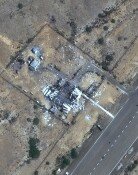Casual Downloading of Obscene Material Could Be Illegal
Casual Downloading of Obscene Material Could Be Illegal
Posted July. 02, 2005 17:57,
Police have caught netizens and peer-to-peer (or P2P) network operators who distribute obscene materials in the form of file sharing in droves.
One should be cautious in using P2P programs because they lead you to automatically share the files that you download, which warrants punishment. Most of the netizens who have been caught said that they did not know that this is illegal.
Incident Outline-
On July 1, the Seoul Metropolitan Police Agency served warrants for five people, including Ahn (36), the operator of a P2P website, for distributing obscene material through P2P networks (which is a violation of laws on prospecting juveniles).
The police also served arrest warrants to five subscribers of the website, including Kang (37), while questioning 58 other internet users.
Policy said that website operators, including Ahn, have distributed some 70,000 cases of obscene materials through P2P networks since 2003 and pocketed 6.9 billion won in cash by selling cyber money necessary to download files.
Some netizens exchanged cyber money that they accumulated when the obscene materials that they posted were downloaded by other internet users for 500 million won worth of gift certificates and home appliances in an internet shopping mall affiliated with the website.
Seoul Jongno Police Station also questioned 275 people that day, including Lim (19), a college student, for distributing obscene materials (a violation of the laws on promoting the use of information and communication networks) through P2P websites.
They have distributed some 30,000 cases of such materials by allowing other internet users to download the files in their computers since November of last year in order to accumulate points that increase with the number of downloads or to expand the amount of space on their computers reserved for file saving.
Some elementary school students and teenagers were caught using P2P websites with their parents name, but were not punished because they are minors.
Be Cautious-
The 275 people questioned by Seoul Jongno Police Station were mostly male college students and office workers in their 20s and 30s, except for five women. Most of them said that they didnt know that their actions were illegal because they were not downloading for commercial use.
The police regard sharing of obscene materials aimed at adding points as a clear intention to distribute such material. But most P2P programs automatically allow other users to share files downloaded by a person, unless he or she designates a specific range of sharing, which could lead innocent users to be punished.
Those P2P websites that went unpunished were the ones that are not commercial, without a cash-for-points system, that have servers overseas and that make those who provided the file first hard to identify because users download files simultaneously from several netizens who have the same files.
Eoh Gi-jun, head of the Korea Computer Life Institute, said, P2P services offer maximum anonymity and accessibility of the internet as it allows individuals to share files directly with others, adding, Theres a need to reinforce the legal responsibility of operators and to increase user awareness of the danger of the service.
Yang-Hwan Jung ray@donga.com ditto@donga.com







